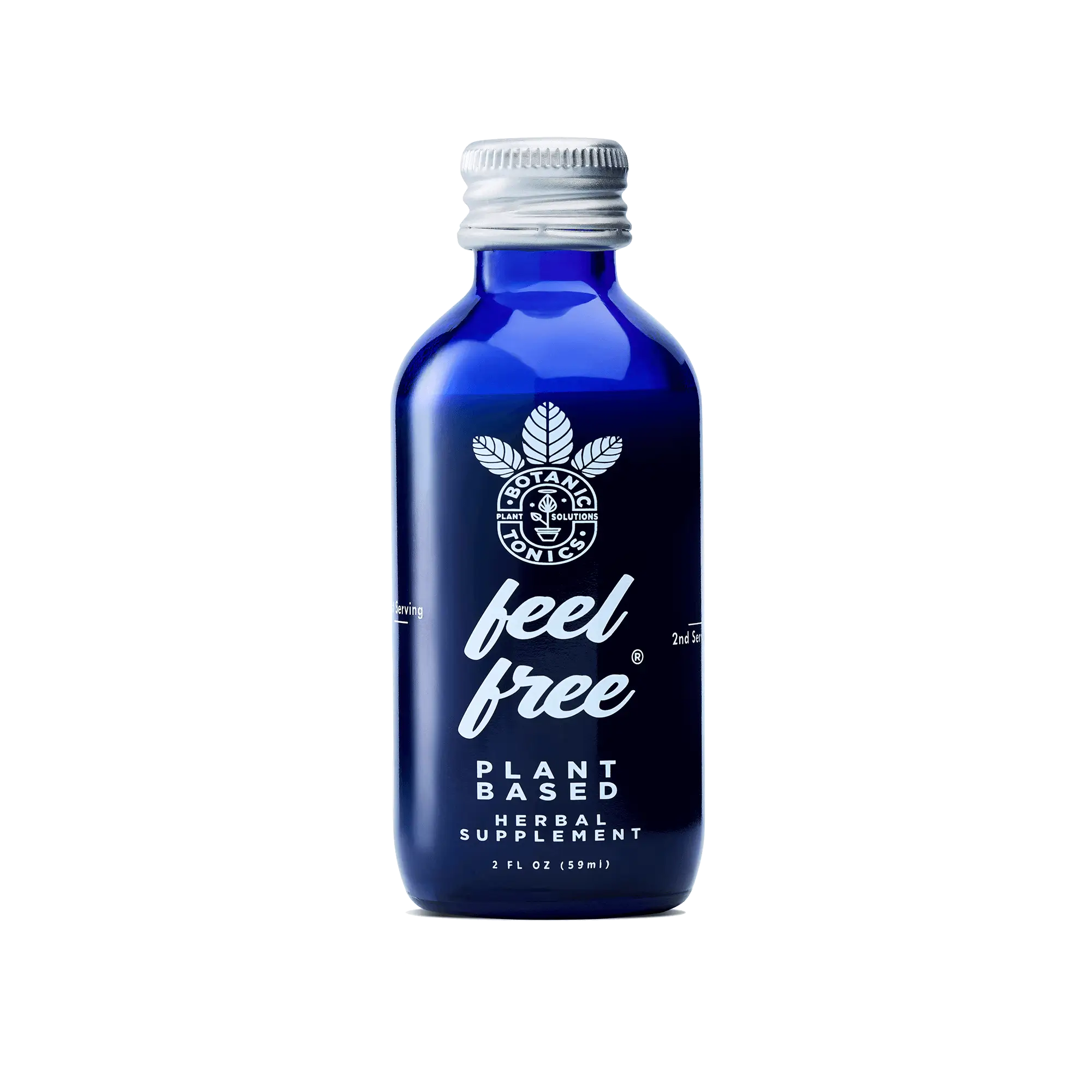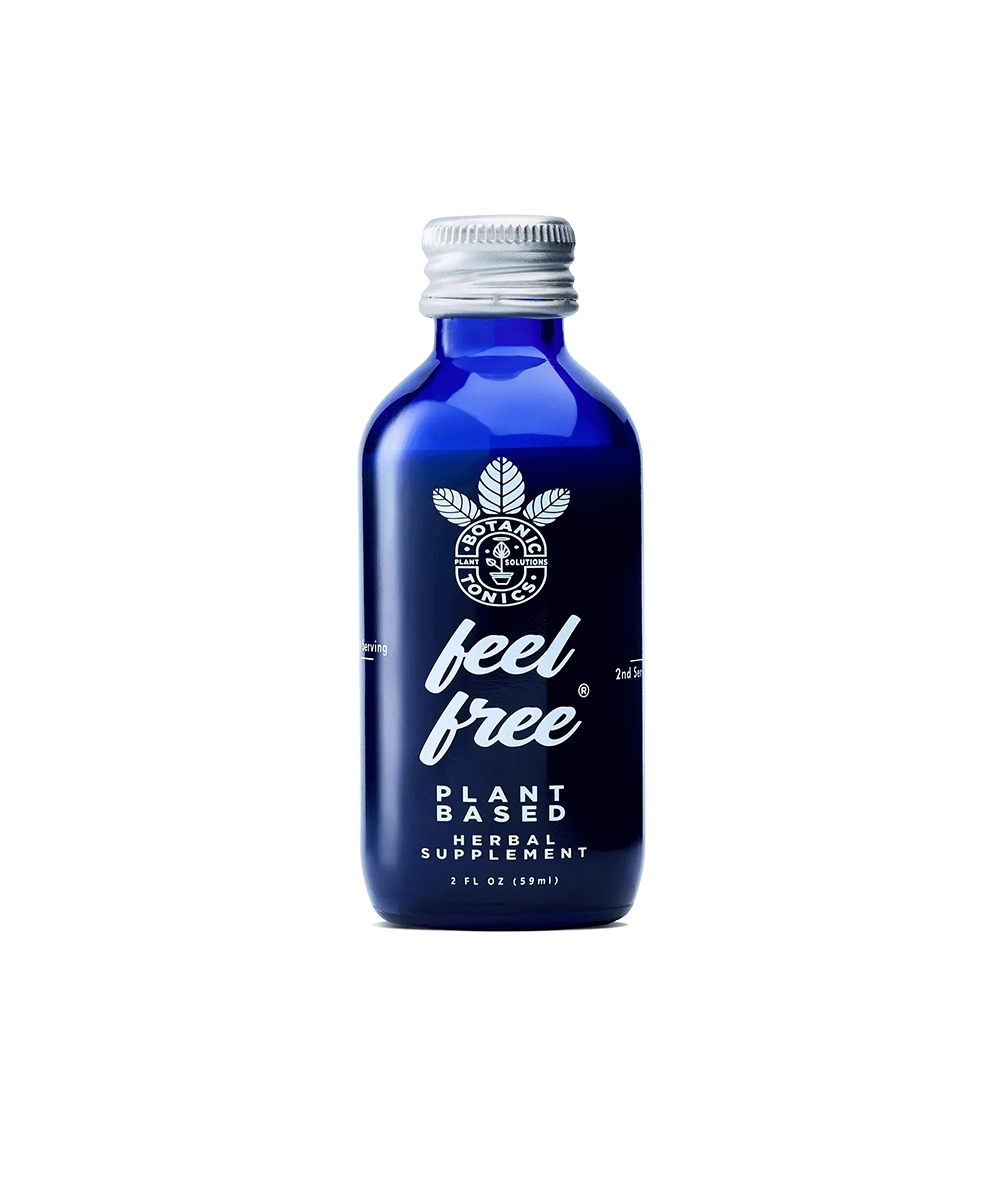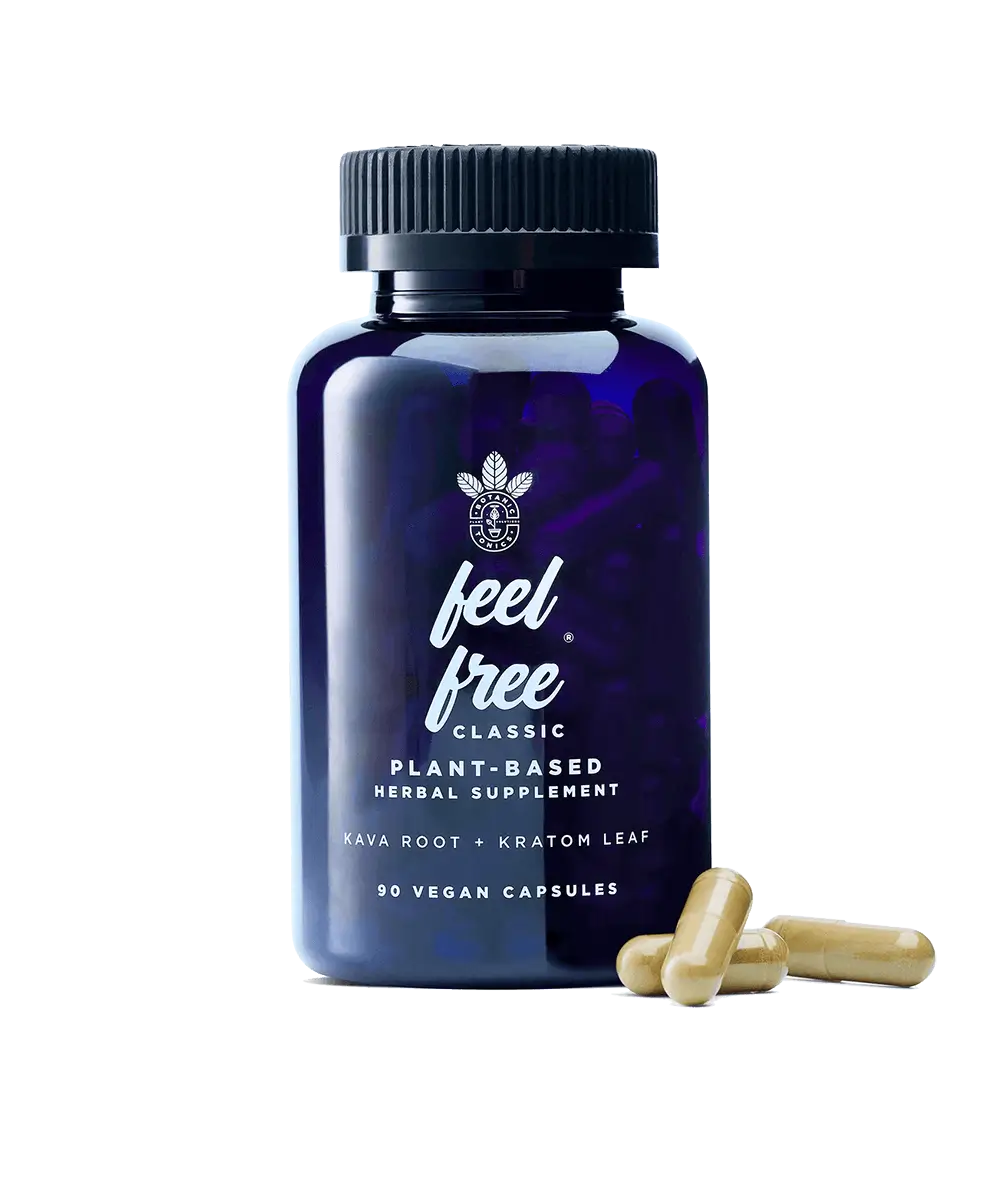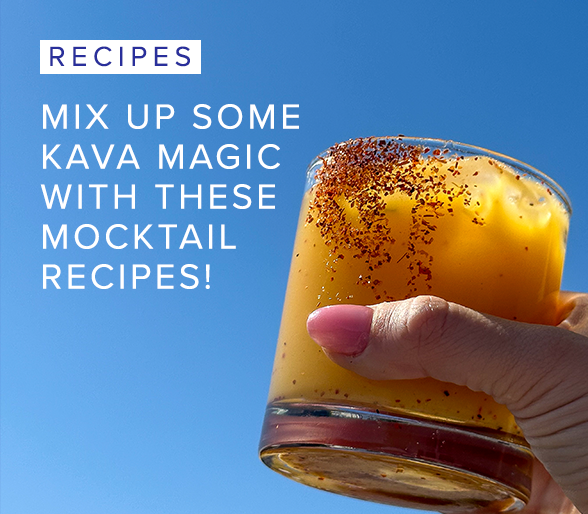Rhodiola vs. Ginseng: Comparing Natural Adaptogens
Navigating the world of natural herbal remedies can be more than a little complicated. There are endless ingredients, many of which come with exotic names and histories. Then, there are the methods of taking those natural medicines. From capsules and powders to tonics and tinctures, there’s no shortage of options.
We know that choosing natural supplements can be complex. But we believe it should be easy. That’s why we’ve created comprehensive guides and comparisons to help you understand the distinctions between common ingredients.
In today’s guide, we’re comparing rhodiola vs. ginseng—two seemingly similar supplements with some notable differences. Join us as we clarify the history, usage, benefits, and potential side effects of each plant.
What is Rhodiola?
Rhodiola, also known by its scientific name Rhodiola rosea, is a yellow flowering plant that grows naturally in cold-weather parts of Europe and Asia.[1] Other names for rhodiola include arctic root or golden root.
These names point to the most important part of this medicinal plant: its root. For hundreds of years, people in locations where rhodiola grows—such as Russia and Scandinavia—have used the roots as natural remedies and even as wedding gifts!
Some of the traditional benefits of rhodiola root include: [1]
- Reducing the effects of stress
- Increasing physical endurance
- Improving mental performance and productivity
- Treating the symptoms of depression, anxiety, and mental fatigue
In short, rhodiola rosea is an incredible plant.
These impressive powers are due to rhodiola’s status as an adaptogen. [2] An adaptogen is any plant that can help your body deal with anxiety, stress, and fatigue, boosting your overall wellness as a result.[3]
As a powerful adaptogen, Rhodiola has found its way into many modern supplements. Because the plant itself is relatively rare, you’re most likely to come across rhodiola in natural wellness products.
What is Ginseng?
Ginseng is the root of a family of low-growing plants that has a long history in natural medicine. For centuries, the gnarled ginseng root has been used as a traditional treatment for various ailments.
Before we go any further, it’s worth noting there are two main types of ginseng used in natural wellness products: Asian ginseng (Panax ginseng) and American ginseng (Panax quinquefolius).[4] Although there are some minor differences between these varieties of ginseng, both are used in the same context. For this guide, we’ll use “ginseng” as an umbrella term for all types.
Ginseng may be effective for many different health concerns. In fact, people often consume ginseng to:[5]
- Improve brain function (memory, mood, and behavior)
- Boost the immune system
- Reduce stress
- Treat symptoms of anxiety and depression
Like Rhodiola, ginseng is also an adaptogen. As such, you’ll see it in all kinds of natural wellness products. In fact, ginseng is one of the most popular natural remedies available—you’ll even find it in Monster Energy drinks![6]
The Differences Between Rhodiola and Ginseng
Compare the list of uses for rhodiola and ginseng, and you’ll see some similarities. Both adaptogenic roots are often used for their reported stress-reducing benefits.
However, these two plants are far from interchangeable. To help you understand the differences, we’re comparing the two below.
Key Benefits and Uses
While some of the benefits of rhodiola and ginseng are the same, there are notable distinctions.
Rhodiola’s reported benefits are largely mental. People who take rhodiola do so because it may reduce stress, lower fatigue levels, and even help with symptoms of depression.[7] The overarching theme here is mental clarity: Rhodiola can help remove that feeling of “brain fog,” making it easier to tackle your cognitive struggles. Several studies, including one from 2022,[8] suggest that these stress-busting powers are significant.
With that said, there may also be physical benefits to consuming rhodiola. People in mountainous regions—where the plant grows—have long used rhodiola to increase physical endurance, energy levels, and high altitude tolerance.[1]
Ginseng’s reported effects are more varied. In the cognitive department, ginseng may help improve focus and overall mental performance.[4] It has also been shown to improve working memory and ease stress, according to several studies.[5]
However, ginseng may also have a wide range of physical benefits. Due to its high levels of antioxidants, ginseng may help reduce inflammation, which can be the source of many other health issues.[4] The root may even have immune-boosting properties and could help protect users from cancer and high blood sugar.[5] Other studies have shown that ginseng might help with erectile dysfunction.[5]
With so many possible benefits, ginseng can appear as somewhat of a “natural catch-all,” making it useful as a general supplement—but not necessarily as a targeted treatment.
Adaptogenic Properties
As mentioned, rhodiola and ginseng are adaptogens, meaning they can help the body adapt and respond to stress. Adaptogenic herbs like these are essential, especially in our high-stress modern world.
However, rhodiola and ginseng differ in the ways they work.
According to research, rhodiola may stimulate the activity of several essential chemicals in the brain, including:[9]
- Serotonin
- Dopamine
- Norepinephrine
The balance of these chemicals is vital; all three are involved in healthy brain function. When these neurotransmitters are in proper balance, and the brain is firing on all cylinders, it may be easier to deal with the occasional symptoms of anxiety, depression, and more.
Ginseng, on the other hand, is believed to boost your nervous system, which affects your fight-or-flight instinct.[3] In other words, a stronger nervous system helps you respond better to stimuli. Some studies also suggest that American ginseng can help regulate your dopamine levels.[3] Additionally, as an antioxidant, ginseng can rid the body of the free radicals that can damage DNA and lead to various medical conditions.[10]
Ultimately, both plants help the body deal with physical and mental stress. It’s the way they do so that differs. What happens inside your body when you take these supplements may not matter as much as how you feel afterward, but knowledge is power. It’s always worth being informed when putting something in your body.
Side Effects and Safety Considerations
While rhodiola rosea and ginseng are miraculous plants with all kinds of benefits, they’re just like any other medicine: Side effects may occur.
With rhodiola, the root is generally considered safe, and any potential side effects are mild. Possible unwanted effects can include dry mouth, excessive saliva, and dizziness.[2]
As for ginseng, the possible side effects are also mild. However, there’s a slightly longer list of them. Side effects of taking ginseng may include:[4]
- Insomnia
- Headaches
- Dizziness
- Nervousness
- Upset stomach
- Menstrual cycle changes
Additionally, ginseng and Rhodiola may react with other medications, so be sure to speak to a healthcare professional if you take anything else.
Part of avoiding side effects is about following proper dosage protocols. Because rhodiola and ginseng are not lab-made medications that have been intensely studied, dosage can be tricky. People who take rhodiola often take 100–600mg per day,[2] while typical ginseng dosage hovers around 200–400mg, depending on the condition you’re trying to treat.[5] Ultimately, talking to a doctor is the best way to know what dosage is right for you.
No matter how much you take, you should avoid consuming rhodiola or ginseng for extended periods unless otherwise directed. For example, rhodiola consumption should be limited to 12 weeks,[2] while ginseng is more likely to be side-effect-free if you limit your usage to a few weeks at a time.[4]
How to Choose the Right Supplement for You
So, should you choose rhodiola, ginseng, or a combination? The answer depends first and foremost on what your doctor says. Only try supplements that you’ve been cleared to take.
Once your healthcare provider gives you the go-ahead, deciding between rhodiola and ginseng depends on what you’re trying to address.
If your goal is to improve your mental clarity and manage the occasional symptoms of anxiety, stress, and depression, rhodiola may be right for you. Rhodiola might also be a smart choice if you have a physical challenge you need to prepare for; after all, the plant can boost your endurance.
If your primary concern is a healthy body, ginseng may be more up your alley. With its anti-inflammatory properties and possible effects on blood sugar levels and cancer, ginseng can promote overall physical health. As a bonus, it may also improve your cognitive functions.
Whatever you choose, look for high-quality natural supplements that contain the recommended dosage of each root. Then, take your supplement regularly to enjoy the effects. You may find it easier to consume your rhodiola or ginseng at the same time each day, developing a healthy routine that you can follow for weeks.
Incorporating Rhodiola into Your Daily Routine
Ginseng and rhodiola are both known for their natural benefits. Each adaptogenic herb may help improve your mental and physical well-being over time.
If you’re looking for natural supplements to enhance your well-being, Botanic Tonics is designed to help you feel your best—one tonic or capsule at a time. Browse our kava capsules and tonics.
Sources:
- Botanic Tonics. What Is Rhodiola? https://botanictonics.com/pages/rhodiola-101
- WebMD. Rhodiola - Uses, Side Effects, and More. https://www.webmd.com/vitamins/ai/ingredientmono-883/rhodiola
- Cleveland Clinic. Adaptogens. https://my.clevelandclinic.org/health/drugs/22361-adaptogens
- WebMD. What Is Ginseng? https://www.webmd.com/diet/supplement-guide-ginseng
- Healthline. 7 Proven Health Benefits of Ginseng. https://www.healthline.com/nutrition/ginseng-benefits
- Healthline. What’s the Difference Between Red Bull and Monster? https://www.healthline.com/nutrition/red-bull-vs-monster
- Healthline. 7 Science-Backed Health Benefits of Rhodiola rosea. https://www.healthline.com/nutrition/rhodiola-rosea
- National Center for Biotechnology Information. The Effectiveness of Rhodiola rosea L. Preparations in Alleviating Various Aspects of Life-Stress Symptoms and Stress-Induced Conditions—Encouraging Clinical Evidence. https://www.ncbi.nlm.nih.gov/pmc/articles/PMC9228580/
- Verywell Mind. The Health Benefits of Rhodiola. https://www.verywellmind.com/how-is-rhodiola-rosea-used-to-treat-anxiety-3024972
- 10. Mount Sinai. Asian ginseng. https://www.mountsinai.org/health-library/herb/asian-ginseng















